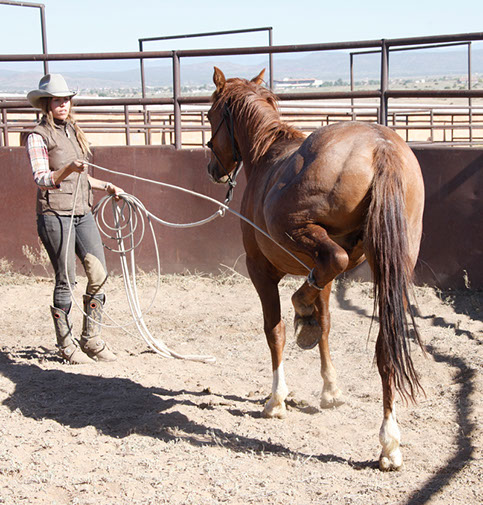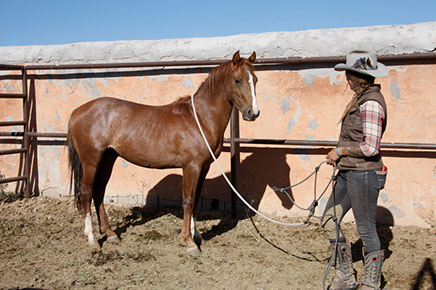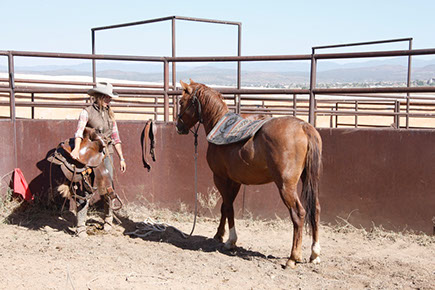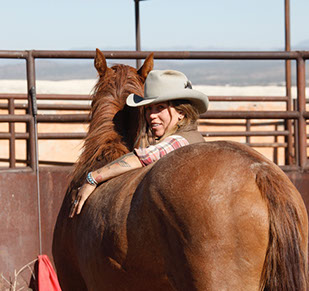mustangs
german
english
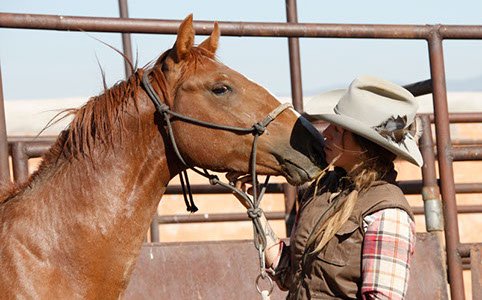
The European colonization of the Americas brought about the return of horses. Fossil records have shown that horses were native to the North American continent, and actually moved to the Eurasian continent by crossing over the land bridge that once connected Russia to America.The genus was extinct by the time the Spanish conquistadors came ashore in North America but as Spanish horses were lost, stolen or merely turned loose onto the western plains, they began to prosper in small, free-roaming bands. The lands they lived upon were unfenced, sparsely watered and of varied terrain, but Predators were few and the bands could move as conditions dictated.
The biggest challenges to the horses’ prosperity lay in the climate and humans. The herds became bigger and bigger. Eventually they started competing with ranchers' cattle for grass or causing damage to farmland. The public-lands ranchers and farmers were determined to protect their livelihoods and so the hunt of the wild horse began. It eventually turned into gruesome roundups with helicopters and sales of the wild horses for dog food.
In 1971 Wild Horse Annie finally succeeded in having a law passed which prohibits the pursuit and killing of wild horses on the public lands as well as the killing of any horse in slaughter plants in the USA. However this didn't stop the conflicts. Ranchers wanted to prioritize the grazing of cattle on these public lands. With the attempt of controlling the reproduction of the herds and giving both animals enough space to coexist, the BLM started rounding up herds of horses and after segregating them according to age and gender, they relocated them into holding pens. Here, these feral animals that have never experienced separation and confinement, will commence a emotionally and physically draining process of wait. Wait to meet their new fate.... or not. Many of these animals are deemed "too wild or too old" for domestication, hence they spend many years in these facilities.
In order to move forward and find a solution as well as a balance it is crucial to find homes for these majestic creatures. Yes they are wild, yes they are feral, yes they can be dangerous, yes it is really hard and challenging to tame them, but it is not impossible. I'm reaching out to everyone who feels affected by this. Who can't walk away from their fates. Sure, money helps but for how long and how efficiently? Education is key, good working hands, trainers, a functional herd management system that is delegated by people who care, breeding control of any domestic animal and strict identification laws following immense fines of abandonment.
Now we need to talk about this matter. Now we need to make a difference and break the viscous cycle so that we can keep healthy herds wild and re-home as many animals as possible.

